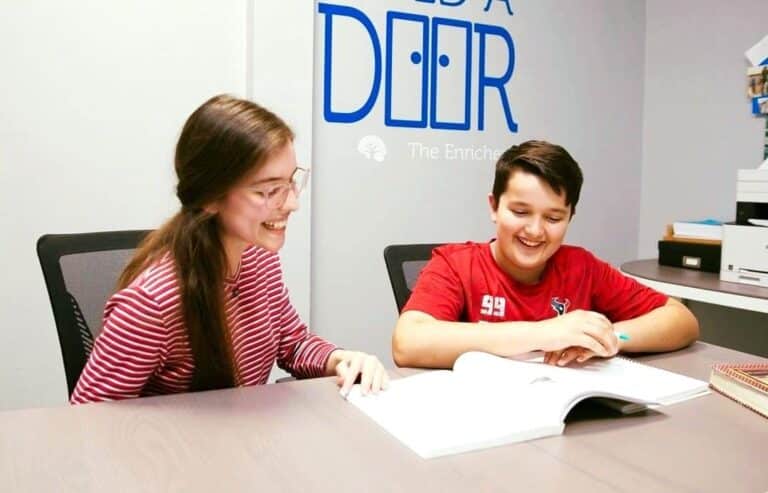It’s a conversation that takes place in pretty much every American household, every evening. “How was school?” “Fine.” “Do you have any homework?” “Nope.” It’s an exchange parents feel obligated (or programmed!) to ask, and one that teenagers typically want to end as soon as possible. You probably won’t get any good, meaningful information from this back & forth – which means it’s time to start asking better questions.
As an executive function coach who works specifically with struggling, atypical learners, Seth Perler knows firsthand the experience of asking the right questions, because those generic questions weren’t giving anyone much to work with. After all, if you ask your sophomore if they have any homework and they answer, “Not really,” where do you go from there? And honestly, after a full day at school, can you really blame them for not eagerly rattling off their to-do list? Using Perler’s questions, you’re much more likely to get thoughtful, legitimate answers.
Perler offers a disclaimer, however: you should not ask every kid every question every night! Instead, utilize the questions that you think will help your child most in that moment. Asking them every single question can overwhelm them and push them away, but your goal is always to be helpful. Some kids need this type of guidance and support more than others, and some days will require it more than others!
The first question Perler encourages parents and coaches to ask is, “What is your #1 priority?” or, how he says he really phrases it, “What is the #1 most important thing you need to do today, that if you did at least that one thing you’d feel good about it?”Give them time to really consider their answer.
Next, Perler explains, is the time to ask that question you’ve already asked at least 100 times: “Do you have any homework?” However, take it one step further. No matter what their answer, you should next cycle through each class and ask again. “Do you have any [English/Math/etc.]?” By going through each class specifically, you’ll help your child break down that larger question (“Do you have any homework?”) and start thinking in specific, concrete terms. Asking these questions can also help jog your child’s memory, or nudge them to check their planner if they can’t give you an answer.
The next question to ask, Perler says, is “Do you have any long-term things you should be working on?” This is the time to discuss things that might not be due tomorrow or the next day, but shouldn’t get brushed to the side or forgotten about. This includes things like papers to write, exams to study for, projects to work on, and readings to complete. This is a crucial question to ask a kid who struggles with procrastination, because no one wants to be writing a 10-page essay the day before it’s due, or cramming for a big exam the morning of! This can also include housekeeping items, like cleaning out their backpack, organizing their binder, and filling out their planner.
Finally, the last question Perler encourages parents to ask is, “What are you forgetting?” In his experience, this question can get those wheels turning and actually help a student remember something that may have slipped their mind for a second. At the very least, this is one last double check (or triple check?) that they’re aware of everything on their plate, and know what they need to accomplish.
In an ideal world, school really always would be “fine,” and they really would never have any homework. But as we all know, that’s not reality. If you’re hoping to dig a little deeper and offer more support to your child, these questions are a great place to start.





